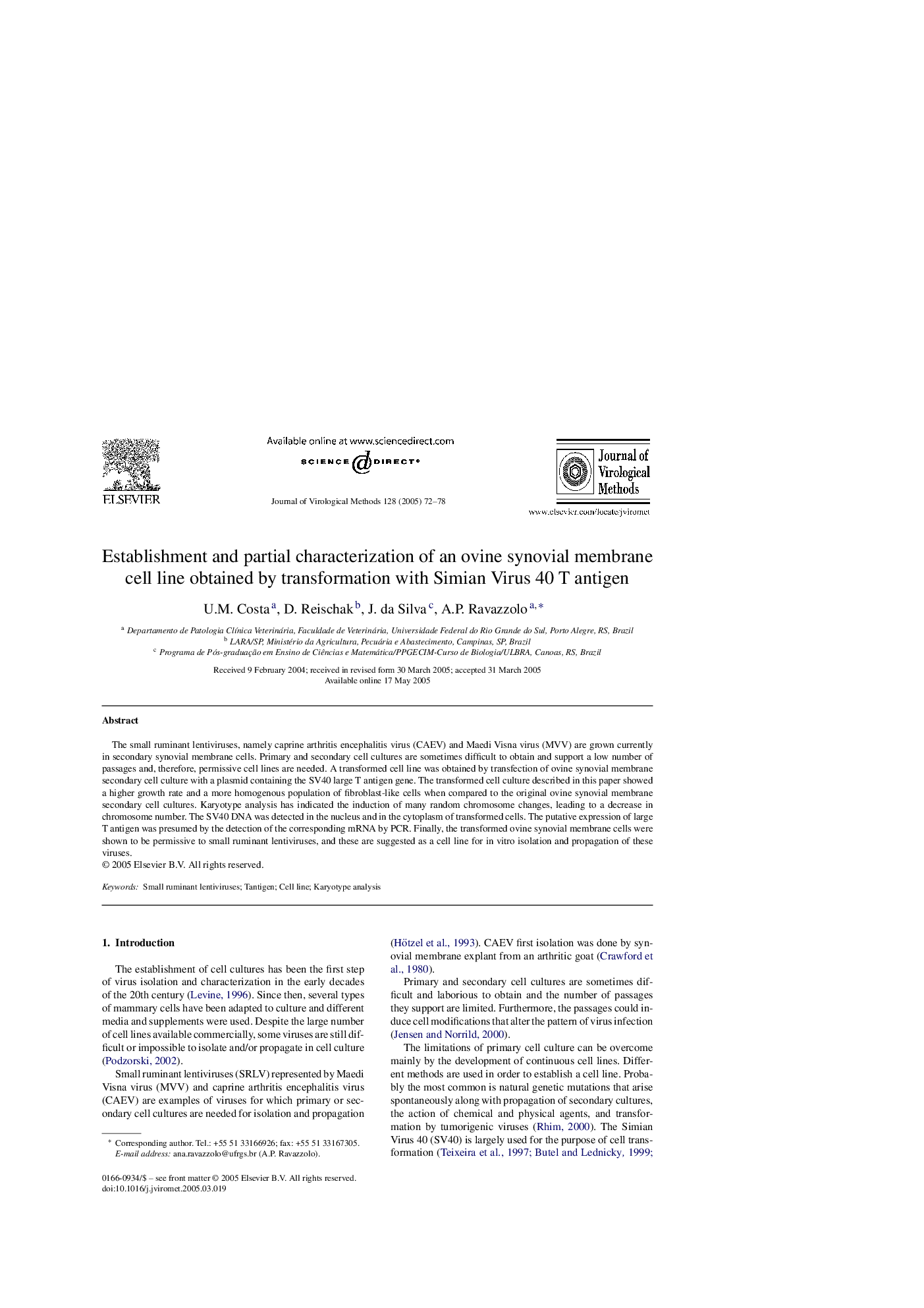| Article ID | Journal | Published Year | Pages | File Type |
|---|---|---|---|---|
| 9279417 | Journal of Virological Methods | 2005 | 7 Pages |
Abstract
The small ruminant lentiviruses, namely caprine arthritis encephalitis virus (CAEV) and Maedi Visna virus (MVV) are grown currently in secondary synovial membrane cells. Primary and secondary cell cultures are sometimes difficult to obtain and support a low number of passages and, therefore, permissive cell lines are needed. A transformed cell line was obtained by transfection of ovine synovial membrane secondary cell culture with a plasmid containing the SV40 large T antigen gene. The transformed cell culture described in this paper showed a higher growth rate and a more homogenous population of fibroblast-like cells when compared to the original ovine synovial membrane secondary cell cultures. Karyotype analysis has indicated the induction of many random chromosome changes, leading to a decrease in chromosome number. The SV40 DNA was detected in the nucleus and in the cytoplasm of transformed cells. The putative expression of large T antigen was presumed by the detection of the corresponding mRNA by PCR. Finally, the transformed ovine synovial membrane cells were shown to be permissive to small ruminant lentiviruses, and these are suggested as a cell line for in vitro isolation and propagation of these viruses.
Related Topics
Life Sciences
Immunology and Microbiology
Virology
Authors
U.M. Costa, D. Reischak, J. da Silva, A.P. Ravazzolo,
